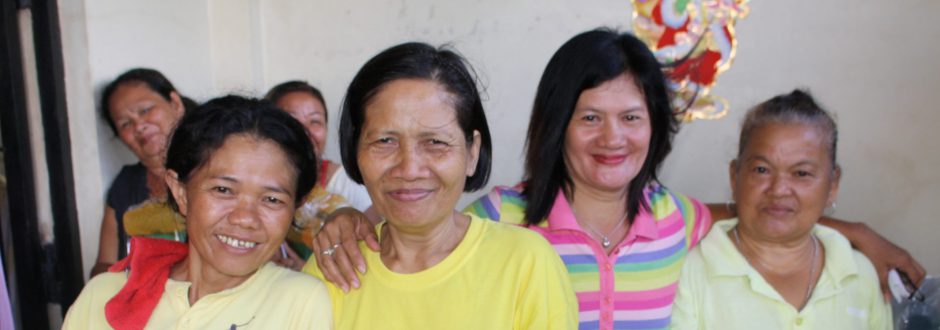Sister Anne Dixon left Australia nearly four years ago to live and work among some of the poorest people of Bacolod, a highly urbanised city on Negros Island in the Philippines, where a small community of Good Samaritan Sisters has been ministering for the past 26 years. For Anne, it’s been a life-giving experience.
“I love it. There’s nowhere else I want to be,” she told The Good Oil.
“I truly believe that this is where God wants me to be at this time of my life. I have a deep peace and contentment because of this belief and it hasn’t waned at all since I arrived.”
That’s not to say Anne doesn’t find life in the Philippines difficult, frustrating and even disturbing at times. She struggles to speak the local language, Ilonggo, and is frustrated by widespread corruption. But she’s particularly disturbed by the “war on drugs” instigated by the country’s newly-elected President, Rodrigo Duterte, which has resulted in the extrajudicial deaths of over 3,000 people, reportedly by police and vigilante groups. She’s also alarmed that the current political environment is accepted by the majority of Filipinos.
“It’s very worrying, disturbing. Yeah, it’s dreadful,” said Anne.
“I get so angry. I read the papers every day and it’s just lists of people who are being murdered.”
Since arriving in Bacolod in 2013 Anne has been providing pastoral care and advocacy support for women who are on remand in prison, waiting to have their cases heard in court. She said the majority of inmates at Bacolod’s provincial prison are poor and many have been charged on drug-related offences – a scenario replicated in prisons throughout the country.
Since the President’s “war on drugs” began a few months ago, the prison population, nationally, has escalated, exacerbating an already overstretched and impoverished system.
“The prisons are getting full of people. But then, it’s like they’re the lucky ones, because they’re the ones who haven’t been shot in the street,” explained Anne.
That might be a consolation, but Anne knows prisons in the Philippines are among the worst in the world, largely due to overcrowding and inadequate facilities. Court proceedings are farcically protracted because of a lack of lawyers and judges, but also because the system is overwhelmed with so many cases, she said. Consequently, many people remain in prison for years without having their case heard in court.
“If you’ve got money you can get out on bail, or you can bribe the judges or the lawyers,” she said. “There’s heaps of corruption in the system.”
Anne is currently supporting a woman who has been in prison for almost 13 years. “She hasn’t been to court yet – 13 years,” said an exasperated Anne. “She’s my age, she’s 59!”
She has also been supporting another woman who, after three years in prison, recently had her case heard in court and was found not-guilty. Anne was overjoyed, but also frustrated.
“It’s mad, three years of your life gone! And in the meantime, she’s got eight children, and her sister got cancer in that time and she’s dying… It’s very sad. There are just so many stories like that,” she said.
Anne said that if she had not volunteered to drive this woman home to her village about an hour away, she may have remained in jail – just because she couldn’t afford the bus fare home.
Supporting people in prison and their families on the outside is a ministry that’s close to Anne’s heart. Before coming to the Philippines, she spent five years as a chaplain in some of Victoria’s men’s prisons. Anne recognises it’s a ministry that few people want to do, so why does she?
“I see people in prison as the forgotten folk. They are on the bottom of the ladder as far as the ‘care factor’ goes,” she said.
“Unless people have a loved one in jail, or know of someone in jail, the majority of people aren’t interested in these folk who have broken the laws of the land and ‘deserve’ their punishment.
“I guess I don’t really care about what they have allegedly ‘done’. If I really thought about it, I would care, because some of the alleged crimes are heinous, but I’m not there to make judgements.
“I do care greatly about them getting a fair trial, and a speedy trial, and I care about them having someone they can talk with, pray with, learn new skills with and just hang out with. I don’t ‘see’ the alleged crime; I see the person in front of me, and I reckon that’s what Jesus would see.”
